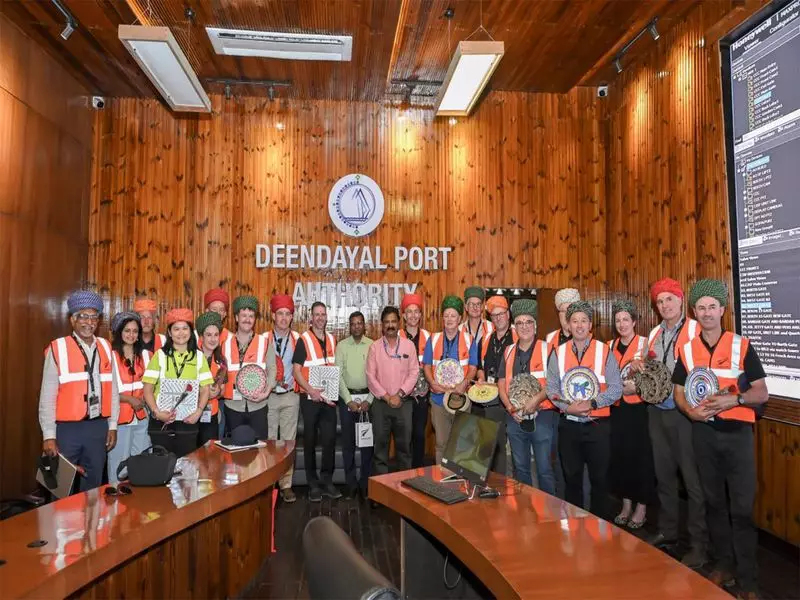
Deendayal Port Authority (DPA) in Kandla has emerged as a frontrunner in India's maritime decarbonisation journey, achieving a remarkable 91% reduction in carbon emissions through strategic green energy projects. This transformation positions the port as a model for sustainable port operations nationwide.
Groundbreaking Achievements in Carbon Reduction
The port's environmental performance data reveals an extraordinary accomplishment: carbon emissions have plummeted from 94,806 tonnes to just 8,487 tonnes, representing a 91% decrease. This dramatic reduction was achieved through the implementation of multiple clean energy initiatives that have fundamentally changed the port's operational footprint.
Central to this success is the port's massive solar power infrastructure. DPA has commissioned 17.42 MW of solar capacity across various locations, including 10.42 MW of rooftop solar installations and an additional 7 MW recently added to their renewable energy portfolio. This solar network generates approximately 25.5 million units of clean electricity annually, significantly reducing the port's dependence on conventional power sources.
Shore Power Revolution for Docked Vessels
In a landmark development for Indian ports, Deendayal Port has successfully implemented shore power supply for berthed vessels. This system allows ships to connect to electrical power from the shore rather than running their auxiliary engines while docked. The initiative has already demonstrated substantial environmental benefits, with seven vessels utilizing shore power since its implementation.
The shore power project represents a crucial step in reducing maritime emissions at the source. When vessels use shore power instead of running their engines, they eliminate significant amounts of air pollutants and greenhouse gases that would otherwise be released in the port area. This technology is considered essential for creating cleaner urban environments around port cities.
Comprehensive Green Infrastructure Development
Beyond solar and shore power, Deendayal Port Authority has deployed a multi-faceted approach to sustainability. The port has installed 1.2 MW of wind power capacity and established 2.8 MW of solar power generation at its township, creating a diversified renewable energy mix that ensures consistent clean power supply.
The port's commitment extends to water conservation as well, with a 2.5 MLD Sewage Treatment Plant (STP) that enables wastewater recycling for various non-potable applications. This integrated approach to resource management demonstrates how industrial operations can simultaneously achieve economic and environmental objectives.
These initiatives align perfectly with the Green Port Mission initiated by the Ministry of Ports, Shipping and Waterways. Deendayal Port's achievements provide a replicable model for other Indian ports seeking to balance operational efficiency with environmental responsibility. The substantial emission reductions achieved at Kandla offer a compelling case study for the maritime industry's transition toward sustainable operations.
As India continues to pursue its climate goals, the success story at Deendayal Port Authority demonstrates that significant decarbonisation is achievable through targeted infrastructure investments and strategic planning. The port's journey from conventional operations to green leadership showcases the tangible benefits of embracing renewable energy and clean technologies in the maritime sector.






